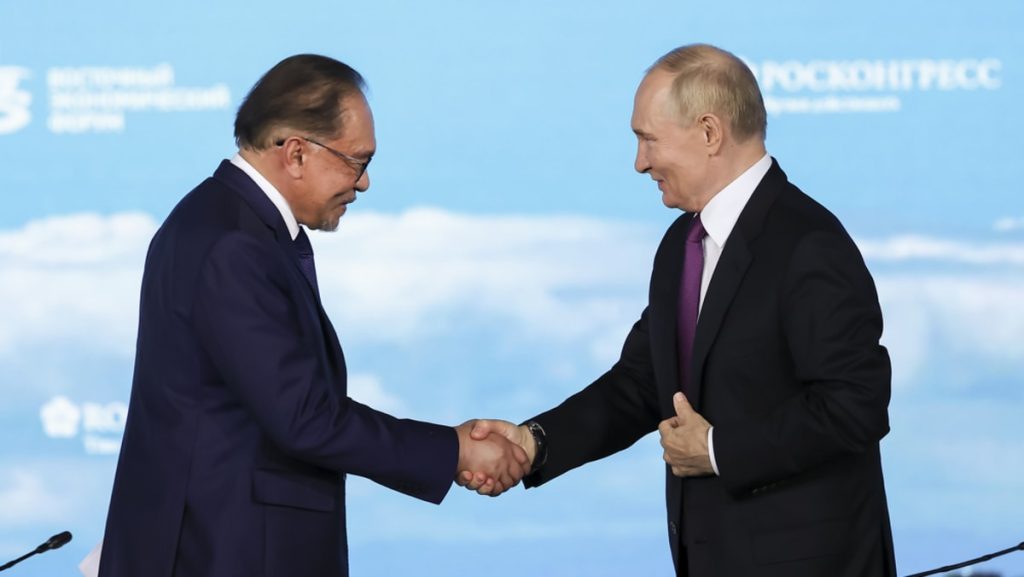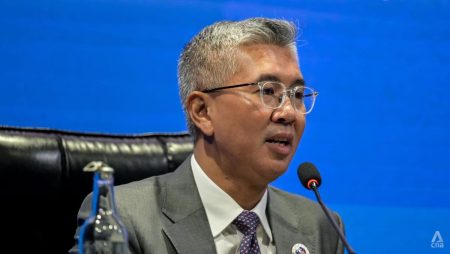The ongoing geopolitical tensions, particularly due to the situation in Ukraine, have significantly impacted the nature of international business and trade with Russia. Industry experts have noted that many companies may hesitate to engage in business with Russia, primarily out of concern over potential trade obstacles caused by the ongoing sanctions imposed by Western nations. The United States’ latest sanctions have particularly focused on limiting Russia’s ability to utilize the international financial system, which poses challenges for standardizing currency in business transactions involving Russia. For companies in Southeast Asia, such as Malaysia, adapting to a new currency system may represent a substantial hurdle, especially as they have long been dependent on services from American and European vendors.
William Ng, chairman of the Small and Medium Enterprises Association of Malaysia, highlighted the difficulties that businesses might face when transitioning from established Western vendors to Russian alternatives. Despite the advancements that Russia has made in developing its own software and IT applications, persuading Southeast Asian companies to shift their reliance to Russian solutions would require considerable effort and adaptation. Businesses in the region have been accustomed to using technologies from the West, and the transition to Russian systems would necessitate a learning curve. The perception of Russia, largely shaped by the ongoing crisis with Ukraine, continues to be a significant barrier to expanding trade ties.
In light of these challenges, the overarching geopolitical situation remains critical in determining the future of business relations with Russia. As long as the conflict in Ukraine remains unresolved, the risks associated with sanctions will deter many companies from seeking partnerships with Russia. Ng contends that the resolution of the Ukraine issue lies firmly in Russia’s hands, indicating that until Russia addresses this conflict, many nations and businesses might be reluctant to engage with it due to the fear of sanctions and potential diplomatic repercussions.
Despite these challenges, there is a willingness among countries within ASEAN, particularly Malaysia, to explore and engage with Russia and other BRICS member nations. This approach is part of a broader strategy aimed at diversifying from traditional markets while maintaining ASEAN’s centrality amid the growing rivalry between superpowers. Malaysia’s incoming leadership of ASEAN presents an opportunity to enhance dialogue and trade relations with Russia, underscoring the importance of collaboration between countries within the regional bloc.
The trade relationship between ASEAN and Russia has shown signs of growth, with a notable 15 percent increase in trade turnover from the previous year being reported in 2023. This growth indicates that, despite the challenges posed by sanctions and geopolitical tensions, ASEAN nations are finding avenues to benefit from their trade ties with Russia. The BRICS grouping, originally comprising Brazil, Russia, India, China, and South Africa, has also expanded in scope, welcoming 13 additional partner countries, including several ASEAN nations, which reflects a collective desire among these countries to strengthen economic ties and counterbalance Western influence.
ASEAN, with its collective GDP nearing US$4 trillion, is recognized as the fifth-largest economy globally. This stature provides the region with significant leverage and opportunities to engage with larger economies, including Russia. As nations contemplate diversifying their economic partnerships, the potential for mutual growth between ASEAN and Russian markets holds promise, but the overarching challenge of geopolitical stability, particularly the situation in Ukraine, will continue to play a crucial role in shaping the landscape of these interactions moving forward.










